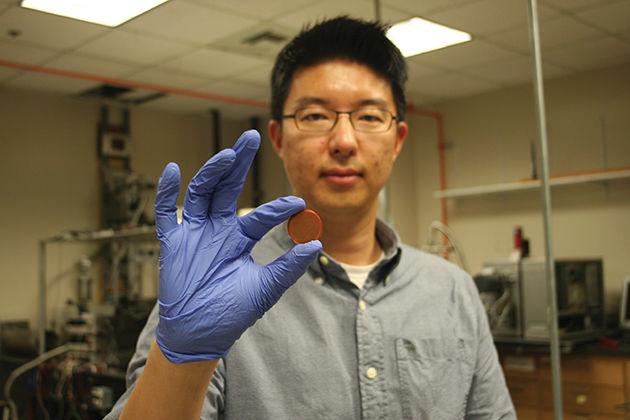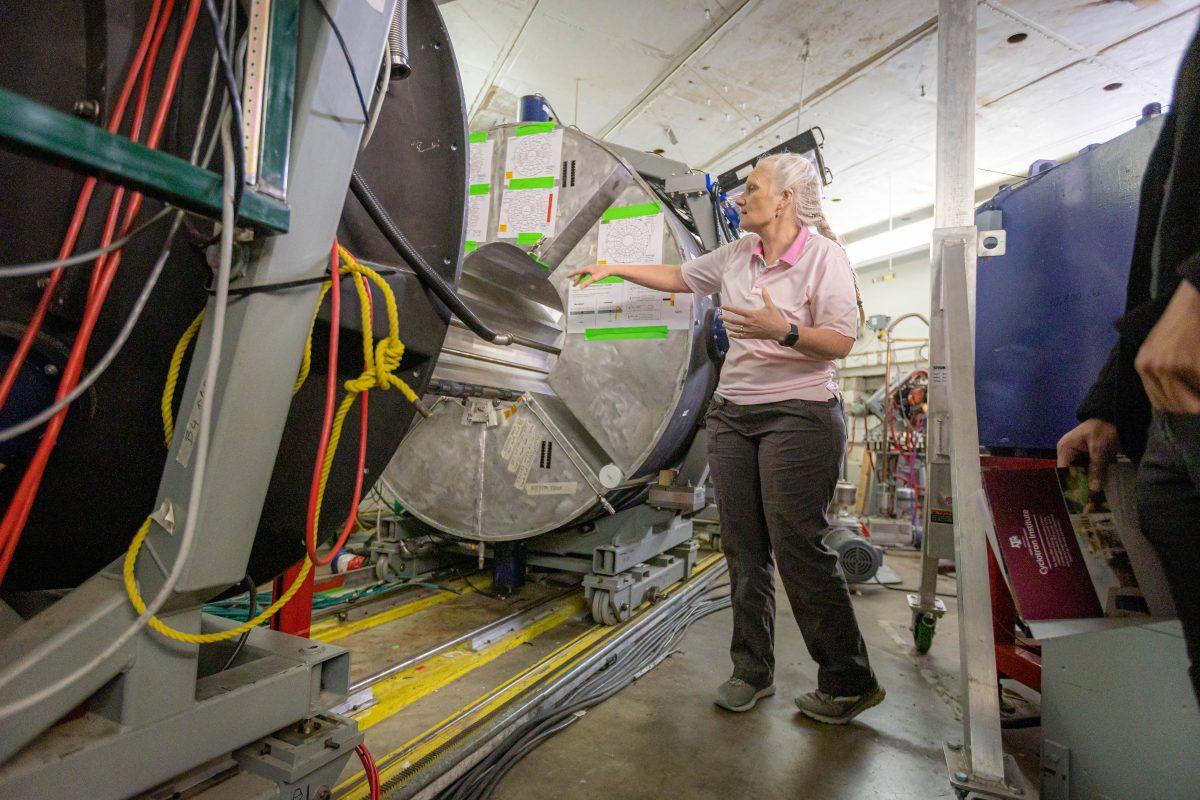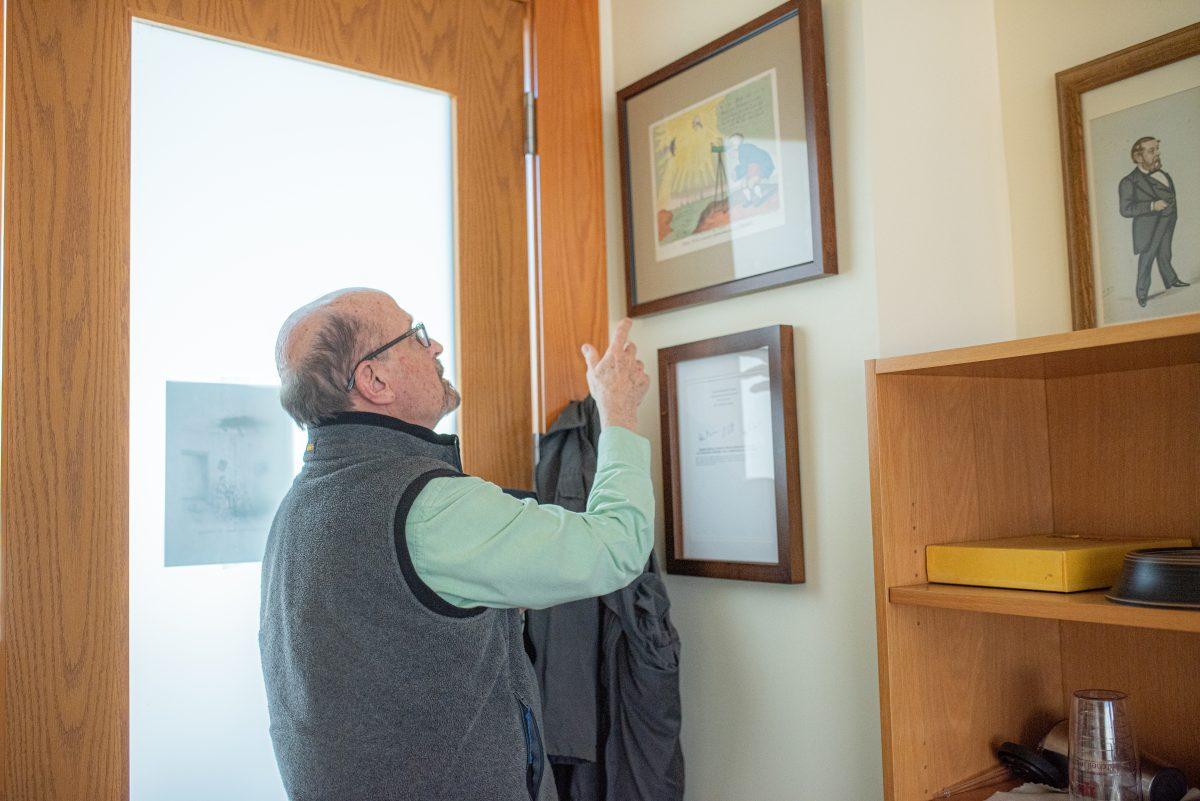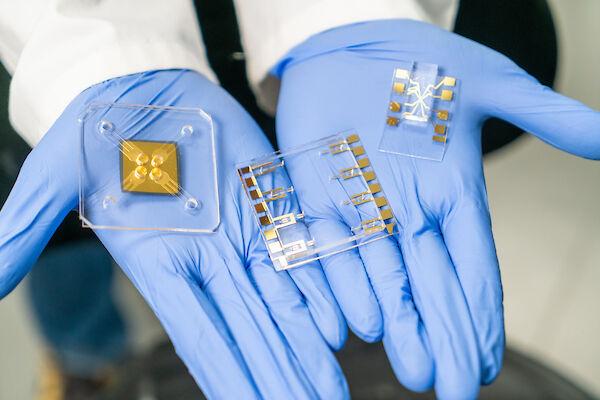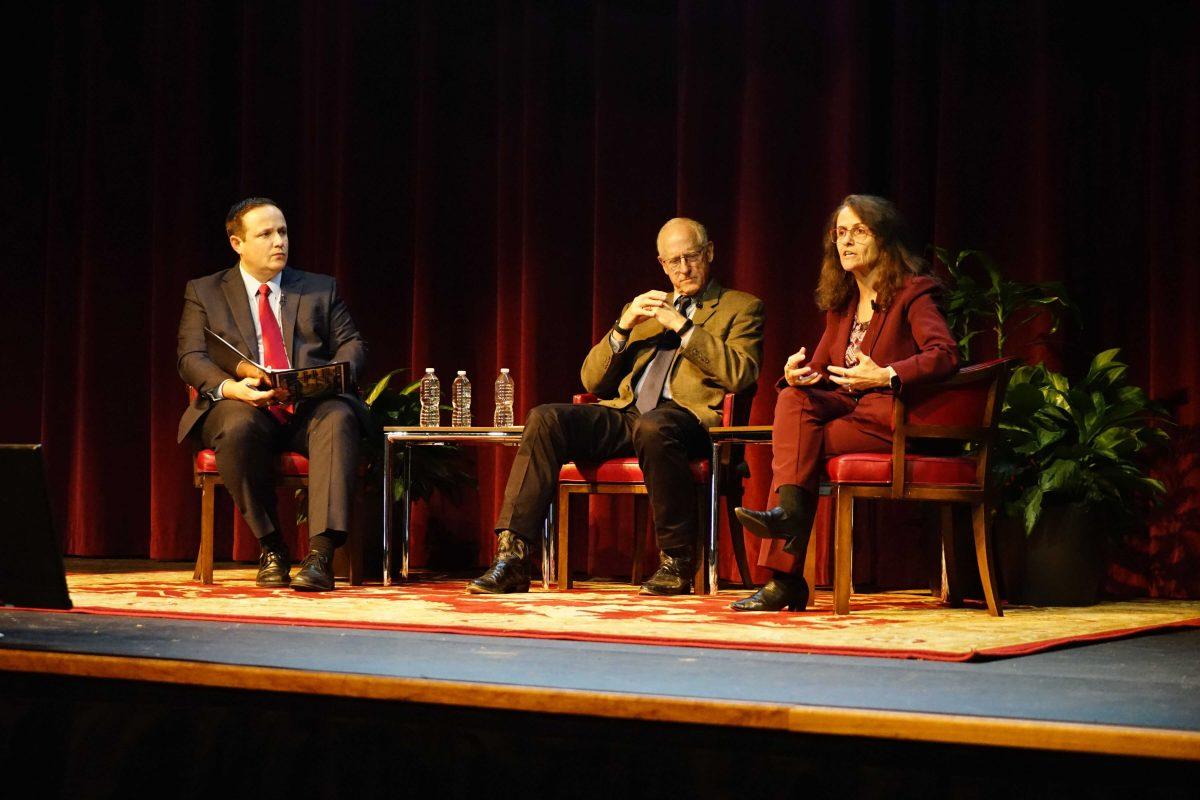Soon, it may be possible to charge a cell phone, not by connecting it to a wall outlet, but with power generated by the human body.
A Texas A&M University professor and his graduate students are changing the way electrical energy is stored through their research of a Thermally Chargeable Solid-state Supercapacitor. The development of the supercapacitor would enable wearable and implanted devices to be charged based on the temperature gradient produced from a person’s body heat.
Choongho Yu, mechanical engineering associate professor and faculty leader of the project, said the concept of this type of energy storage is unique to the project.
“This research is about converting heat to electricity,” Yu said. “There are some other technologies that convert heat to electricity, such as thermoelectrics and pyroelectrics — the abnormality here is that we combined the thermo energy into electricity at the same time we store the energy in the same device.”
The idea for the device stemmed from the discovery of a highly conductive organic polymer — natural substance — founded by Yu and his PhD student, Suk Lae Kim. According to Kim, the organic polymer material found conducted immensely larger amounts of energy compared to what has been found before.
“Conventional thermoelectric material can produce only microvolt range,” Kim said. “This one is over 100 times higher.”
With the discovery of the organic polymer, the minimum amount of energy needed to charge a standard device was feasible.
“It’s a fully integrated device that we can use adapted electricity any time we want,” Kim said.
Yu said his ultimate goal is to use the supercapacitor to improve battery operated monitoring systems for many different occasions like oil pipeline inspection as well as implantable health monitors.
“There are lots of implantable devices that are powered by batteries,” Yu said. “By using our device and taking energy from the patient’s body heat, the person will not have to have to go through the standard surgery to change out batteries that they would generally have every two to four years. This saves them a lot of pain and unnecessary strain.”
Yu said the adaptation of the device will prevent pipeline workers from worrying if important monitoring devices are kept charged, while limiting additional surgeries for doctors changing batteries of implantable medical devices.
In an effort to further develop their project, Yu and his students are seeking corporate partnership to hopefully get their idea completed and marketed soon.
Cellphones could one day be charged by body heat
January 31, 2017
Photo by Photo by Aimée Rodriguez
Ph.D. student Suk Lae Kim and professor Choongho Yu are researching a new way to charge cell phones using body heat.
Donate to The Battalion
Your donation will support the student journalists of Texas A&M University - College Station. Your contribution will allow us to purchase equipment and cover our annual website hosting costs.

















